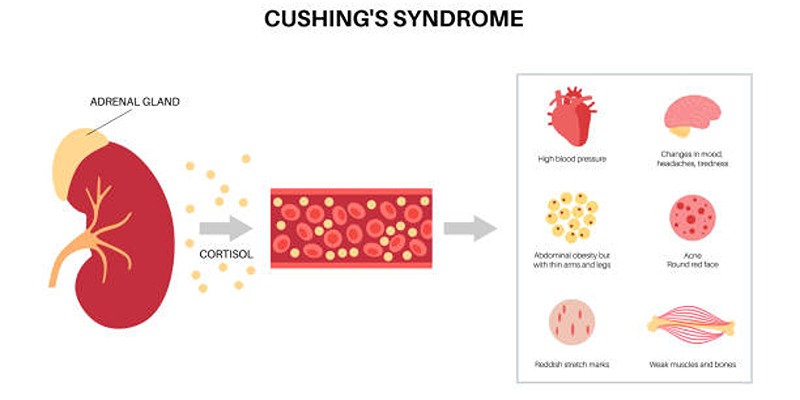Sound Therapy for Tinnitus: An Effective Way to Manage the Noise
Advertisement
Tinnitus is a common condition where people hear a ringing, buzzing, or other noise in their ears, even when there is no external sound. It can be frustrating and affect daily life, making it hard to focus or relax. Sound therapy is a helpful way to manage tinnitus by using different sounds to mask or reduce the noise you hear. This method can bring relief and improve well-being for many people. It’s a simple and non-invasive approach that supports better peace of mind.
Understanding Tinnitus and Its Effects
Tinnitus is actually not a disease, but rather a sign that there might be something wrong with your body. Its symptoms are ringing, buzzing, hissing, clicking or even humming type noise in the affected ear or both ears. The sound could be of different tones and volume and could be continuous or discontinuous. Some people can hear tinnitus for short durations while others can keep on hearing it all day and night. There are two types of tinnitus: subjective (sounds in the ears of the person only) and objective trouvé (also audible by others).
The actual cause of tinnitus has not been determined it is associated with hearing loss attributed to aging, noise damage, infections, or use of some specific drugs. There are some other possible are head or neck injuries, cardiovascular diseases and neurological disorders. Stress and anxiety are some of the other causes of tinnitus as well.
What is Sound Therapy?

Sound therapy is a technique that uses sound to manage tinnitus symptoms. It aims to reduce the perception of the internal noise by introducing external sounds, which can either mask or distract from the ringing in the ears. Sound therapy can be used as part of a comprehensive treatment plan for tinnitus or on its own. It's typically administered through wearable devices such as hearing aids, ear-level sound generators, table-top sound machines, or smartphone apps.
Different Types of Sound Therapy
There are several types of sound therapy available, each with its own approach and benefits:
- White Noise: This type of sound contains all audible frequencies at equal intensity and helps to drown out other sounds.
- Pink Noise: Similar to white noise, pink noise contains all audible frequencies, but the lower frequencies are louder. It can be more soothing and less harsh compared to white noise.
- Nature Sounds: Such as ocean waves, rainforest sounds or bird songs can provide a calming and relaxing environment.
- Notched Sound Therapy: This method uses customized sound signals with specific frequencies that match the individual's tinnitus pitch. It stimulates the auditory system and helps to reduce the perception of tinnitus.
- Music Therapy: Listening to music has been found to have therapeutic effects for tinnitus sufferers, especially when it includes specific acoustic features like slow tempo and low pitch.
Combining Sound Therapy with Other Treatments
Sound therapy can be used in combination with other treatments for tinnitus, such as cognitive-behavioral therapy (CBT), relaxation techniques, or mindfulness practices. CBT can help individuals develop coping mechanisms and change negative thoughts associated with tinnitus, while relaxation techniques like deep breathing and yoga can reduce stress levels. Mindfulness practices involve focusing on the present moment and accepting the tinnitus sound without judgment, which can lead to decreased distress and improved quality of life.
The Benefits of Sound Therapy for Tinnitus
Sound therapy has been shown to have several benefits for individuals with tinnitus, including:
- Masking Tinnitus Noise: By introducing external sounds, sound therapy can mask or cover up the ringing or buzzing sensation. It's a temporary relief and can be especially beneficial at night when the tinnitus noise can be more bothersome.
- Reducing Stress and Anxiety: Tinnitus can cause distress, leading to increased stress and anxiety. Sound therapy has a calming effect that helps reduce these symptoms and promote relaxation.
- Improving Sleep: Difficulty falling asleep or staying asleep is a common complaint among people with tinnitus. The use of soothing sounds during bedtime can help improve sleep quality by masking the internal noise and promoting relaxation.
- Promoting Neuroplasticity: Neuroplasticity is the brain's ability to adapt and change in response to new situations or experiences. Sound therapy can stimulate this process by introducing new external sounds, which can help reduce the perception of tinnitus over time.
- Customizable Options: With sound therapy, individuals have the flexibility to choose from different types of sounds and adjust them according to their preferences and needs.
How to Get Started with Sound Therapy

If you're interested in trying sound therapy for tinnitus, it's essential to consult a healthcare professional first. They can evaluate your condition and help recommend the best type of sound therapy for you. The process typically involves adjusting the volume and frequency levels of the sounds to meet your individual needs.
Sound therapy usually requires consistent use over time to see results, so it's essential to be patient and persistent. It's also important to avoid exposing yourself to loud noises that could worsen your tinnitus or cause hearing damage. With proper guidance and commitment, sound therapy can be an effective way to manage tinnitus and improve overall well-being.
Tips for Using Sound Therapy Effectively
- Experiment with different types of sound until you find what works best for you.
- Use sound therapy consistently and regularly, as it may take time to see results.
- Combine different types of sound therapy for the best outcome. For example, use white noise to mask tinnitus at night and nature sounds during the day to promote relaxation.
- Adjust your environment to minimize external noises that may interfere with sound therapy.
- Remember that sound therapy is a support tool, not a cure. It can help manage tinnitus symptoms but may not eliminate them completely.
Conclusion
While tinnitus can be a challenging condition to live with, sound therapy offers a non-invasive and accessible option for managing its symptoms. With different types of sound therapy available and customizable options, individuals can find relief and improve their well-being. With the right guidance and commitment, sound therapy can be an effective way to manage tinnitus and promote better peace of mind. If you are struggling with tinnitus, consider discussing sound therapy as an option with your healthcare provider.
Advertisement












